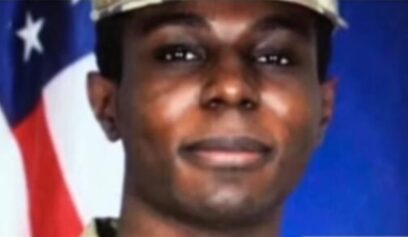The United States has delayed a long-planned missile test scheduled for next week and publicly revealed a new “counter-provocation” plan that describes how the U.S. and South Korea will respond proportionally to North Korea aggression.
The U.S. is delaying the test of the Minuteman III intercontinental missile from Vandenberg Air Force Base in California “to avoid any misperception or miscalculation,” according to a senior U.S. defense official.
“This is the logical, prudent and responsible course of action to take,” the official said on Saturday, according to Al Jazeera.
Meanwhile, the New York Times is reporting that Americans and South Koreans are working on a “counter-provocation” plan that calls for an immediate but proportional “response in kind” — hitting the source of any North Korean attack with similar weapons.
As an example, the paper says, if the North Koreans shelled a South Korean island that had military installations, as has occurred in the past, the South would retaliate quickly with a barrage of artillery of similar intensity.
South Korea’s national security director predicted yesterday that the North might launch one of its new missiles this week. If that were the case, Pentagon officials said they would be ready to calculate its trajectory within seconds and shoot it down if it appeared headed toward impact in South Korea, Japan or Guam, an American territory. If it headed toward open water, even if it went over Japan, as one previous North Korean test missile did, no action would be taken.
But senior U.S. officials doubted that North Korea President Kim Jong Un would be bold enough to risk aiming a missile at the United States or its allies.
President Obama has decided the U.S. would not strike the missiles while they are on their launchers — when they are easiest to destroy — unless there is evidence they are being fitted with nuclear warheads, which intelligence officials don’t believe North Korea possesses.
“How we carry out a proportional retaliation without triggering a general conflict, or an assault on Seoul, is the hardest part of the problem,” Gary Samore, who served until recently as Obama’s top nuclear adviser and is now the executive director of Harvard’s Belfer Center for Science and International Affairs, told the New York Times. “Everyone is aware there are not big margins for error here.”
In another sign of the escalating tensions, North Korea said it will withdraw its workers from a jointly managed industrial complex that is the last remaining point of contact with the South — and a source of income for the impoverished North.
“The new agreement defines action down to the tactical level and locks in alliance political consultations at the highest level,” an American official said. The official said the South Korean military would take the lead in any response to hostilities from the North short of war.
“North Korea has gotten away with murder — literally — for decades, and the South Korean and American forces have rarely responded with decisive military action,” said David S. Maxwell, a retired Army colonel who served five tours in South Korea.
“It’s very important to break the cycle of provocation,” Maxwell, now the associate director of the Center for Security Studies at Georgetown University, told the Times. “These responses have to be proportional. They have to be delivered decisively, at the time and at the point of provocation.”
The additional American military presence in South Korea is believed to be a source of worry to China — and that is part of the point, since the U.S. is trying to demonstrate to the Chinese that unless they control North Korea, there will be an increased American military presence in northeast Asia, which they had been hoping to do away with.
“There are some who question our long-term staying power in the Asia-Pacific region, especially in a time of spending constraints,” one American official said. “So it is important to show our allies that we can still project power in a very meaningful and rapid way.”


